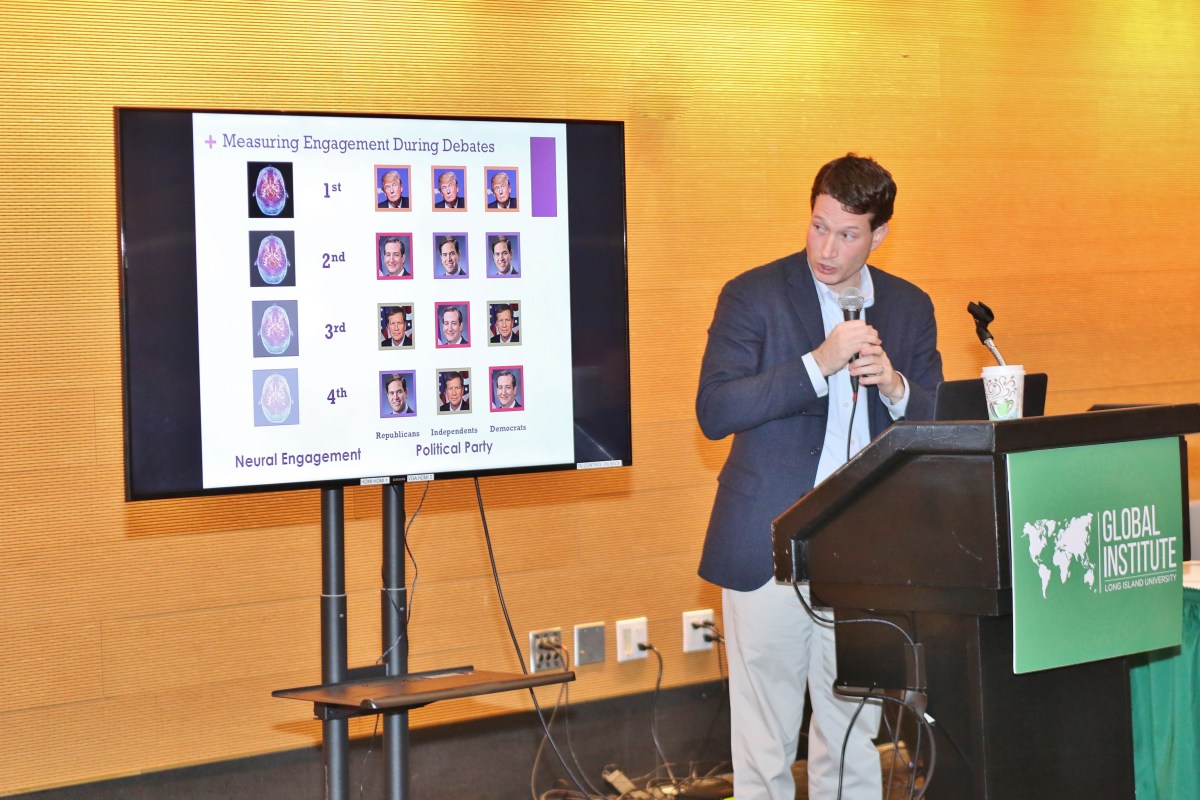If conservatives and progressives seem to be living on different planets, it’s likely due to cognitive differences in how they filter their experiences, creating what experts dubbed “the partisanship of the mind.”
Those were among the observations to emerge from “Elections and How We Think,” a nonpartisan panel discussion featuring psychology professor Drew Westen and neuroscientist Dr. Sam Barnett on Nov. 16 at the Tilles Center for the Performing Arts in Brookville. Essentially, one side focuses on reason, and the other on emotion.
“We always had a balance between the two,” said ex-U.S. Rep. Steve Israel (D-Huntington), chair of the Global Institute at LIU Post, who moderated the panel. “And the balance was fortified by things like Walter Cronkite, by exposure to true news that really was fair and balanced, by spending the time necessary to read.”
Westen, author of The Political Brain, and Barnett, CEO of SBB Research Group, were billed as two of the foremost experts in understanding how the human brain can effectively anticipate political behavior.
Barnett drew from results of a study he conducted in which researchers used EEGs to measure brain activity of March 2016 Republican primary debate viewers. The results accurately predicted that Donald Trump would win the Illinois GOP presidential primary.
Westen, a professor of psychology and psychiatry at Emory University, explained how politicians use debates, speeches and ads to sway voters. He said a different view of the mind and brain leads to a different way of talking with voters about issues such as abortion, guns, taxes and race.


































